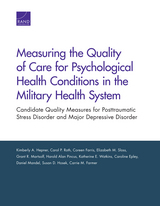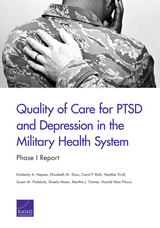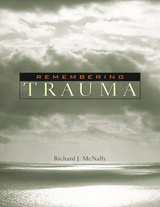

After papá’s arrest in 1980, Daniel’s family fled to the United States. Now Daniel has a new life, playing guitar in a rock band and dating Courtney, a minister’s daughter. He hopes to become a US citizen as soon as he turns eighteen.
When Daniel’s father is released and rejoins his family, they see what five years of prison and torture have done to him. Marcelo is partially paralyzed, haunted by nightmares, and bitter about being exiled to “Gringolandia.” Daniel worries that Courtney’s scheme to start a bilingual human rights newspaper will rake up papá’s past and drive him further into alcohol abuse and self-destruction. Daniel dreams of a real father-son relationship, but he may have to give up everything simply to save his papá’s life.
This powerful coming-of-age story portrays an immigrant teen’s struggle to reach his tortured father and find his place in the world.

Here is how Neil Boothby, Director of the Program on Forced Migration and Health at the Mailman School of Public Health, Columbia University, describes the book:
"Mollica provides a wealth of ethnographic and clinical evidence that suggests the human capacity to heal is innate--that the 'survival instinct' extends beyond the physical to include the psychological as well. He enables us to see how recovery from 'traumatic life events' needs to be viewed primarily as a 'mystery' to be listened to and explored, rather than solely as a 'problem' to be identified and solved. Healing involves a quest for meaning--with all of its emotional, cultural, religious, spiritual and existential attendants--even when bio-chemical reactions are also operative."
Healing Invisible Wounds reveals how trauma survivors, through the telling of their stories, teach all of us how to deal with the tragic events of everyday life. Mollica's important discovery that humiliation--an instrument of violence that also leads to anger and despair--can be transformed through his therapeutic project into solace and redemption is a remarkable new contribution to survivors and clinicians.
This book reveals how in every society we have to move away from viewing trauma survivors as "broken people" and "outcasts" to seeing them as courageous people actively contributing to larger social goals. When violence occurs, there is damage not only to individuals but to entire societies, and to the world. Through the journey of self-healing that survivors make, they enable the rest of us not only as individuals but as entire communities to recover from injury in a violent world.




Until February 15, 2001, Howard Reich’s mother, Sonia, had managed to keep almost everything about her experience of the Holocaust from her son. That night, she packed some clothes and fled her house in Skokie, Illinois, convinced that someone was trying to kill her. This was the first indication that she was suffering from late-onset post traumatic stress disorder, a little-known condition that can emerge decades after the initial trauma. For Howard, it was also the opening of a window onto his mother’s past.
In Prisoner of Her Past, Howard Reich has written a moving memoir about growing up as the child of Holocaust survivors and finding refuge from silence and fear in the world of jazz. It is only when Sonia’s memories overwhelm her and Howard begins to piece together her story that he comes to understand how his parents’ lives shaped his own. The paperback edition includes an epilogue by the author that relates developments since the publication of the cloth edition.


Are horrific experiences indelibly fixed in a victim’s memory? Or does the mind protect itself by banishing traumatic memories from consciousness? How victims remember trauma is the most controversial issue in psychology today, spilling out of consulting rooms and laboratories to capture headlines, rupture families, provoke legislative change, and influence criminal trials and civil suits. This book, by a clinician who is also a laboratory researcher, is the first comprehensive, balanced analysis of the clinical and scientific evidence bearing on this issue—and the first to provide definitive answers to the urgent questions at the heart of the controversy.
Synthesizing clinical case reports and the vast research literature on the effects of stress, suggestion, and trauma on memory, Richard McNally arrives at significant conclusions, first and foremost that traumatic experiences are indeed unforgettable. Though people sometimes do not think about disturbing experiences for long periods of time, traumatic events rarely slip from awareness for very long; furthermore, McNally reminds us, failure to think about traumas—such as early sexual abuse—must not be confused with amnesia or an inability to remember them. In fact, the evidence for repressed memories of trauma—or even for repression at all—is surprisingly weak.
A magisterial work of scholarship, panoramic in scope and nonpartisan throughout, this unfailingly lucid work will prove indispensable to anyone seeking to understand how people remember trauma.

Vietnam still haunts the American conscience. Not only did nearly 58,000 Americans die there, but--by some estimates--1.5 million veterans returned with war-induced Post-Traumatic Stress Disorder (PTSD). This psychological syndrome, responsible for anxiety, depression, and a wide array of social pathologies, has never before been placed in historical context. Eric Dean does just that as he relates the psychological problems of veterans of the Vietnam War to the mental and readjustment problems experienced by veterans of the Civil War.
Employing a multidisciplinary approach that merges military, medical, and social history, Dean draws on individual case analyses and quantitative methods to trace the reactions of Civil War veterans to combat and death. He seeks to determine whether exuberant parades in the North and sectional adulation in the South helped to wash away memories of violence for the Civil War veteran. His extensive study reveals that Civil War veterans experienced severe persistent psychological problems such as depression, anxiety, and flashbacks with resulting behaviors such as suicide, alcoholism, and domestic violence. By comparing Civil War and Vietnam veterans, Dean demonstrates that Vietnam vets did not suffer exceptionally in the number and degree of their psychiatric illnesses. The politics and culture of the times, Dean argues, were responsible for the claims of singularity for the suffering Vietnam veterans as well as for the development of the modern concept of PTSD.
This remarkable and moving book uncovers a hidden chapter of Civil War history and gives new meaning to the Vietnam War.

You are nine years old. Your best friend's father is arrested, half your classmates disappear from school, and someone burns down the house across the road. You think your neighbors were planning to kill your family. You are eight years old and imprisoned in your home by your father's old friends. You are ten years old and must climb a mountain at night to escape the soldiers trying to shoot you.
What happens to children who grow up with war? How do they live with the daily reality of danger, hunger, and loss--and how does it shape the adults they become?
In Then They Started Shooting, child psychiatrist Lynne Jones draws the reader into the compelling stories of Serbian and Muslim children who came of age during the Bosnian wars of the 1990s. These children endured hardship, loss, family disruption, and constant uncertainty, and yet in a blow to psychiatric orthodoxy, few showed lasting signs of trauma. Thoughts of their personal futures filled their minds, not memories of war.
And yet, Jones suggests in a chilling conclusion, the war affected them deeply. Officially citizens of the same country, the two communities live separate, wary lives. The Muslims hope for reconciliation but cannot believe in it while so many cannot go home and war criminals are still at large. The Serbs resent the outside world, NATO, and fear the return of their Muslim neighbors. Cynical about politics, all of them mistrust their elected leaders. War may end, but the persistence of corruption and injustice keep wounds from healing.

According to the poet Elias Canetti, “All the things one has forgotten / scream for help in dreams.” To the ancient Egyptians they were prophecies, and in world folklore they have often marked visitations from the dead. For Freud they were expressions of “wish fulfillment,” and for Jung, symbolic representations of mythical archetypes. Although there is still much disagreement about the significance and function of dreams, they seem to serve as a barometer of current mind and body states.
In this volume, Deirdre Barrett brings together the study of dreams and the psychology of trauma. She has called on a distinguished group of psychiatrists, psychologists, and social workers—among them Rosalind Cartwright, Robert J. Lifton, and Oliver Sacks—to consider how trauma shapes dreaming and what the dreaming mind might reveal about trauma. The book focuses on catastrophic events, such as combat, political torture, natural disasters, and rape. The lasting effects of childhood trauma, such as sexual abuse or severe burns, on personality formation, the nature of memories of early trauma, and the development of defenses related to amnesia and dissociation are all considered. The book also takes up trauma and adult dreams, including Vietnam veterans and Post-Traumatic Stress Disorder, Holocaust survivors and perpetrators, rape victims, and firestorm survivors. Finally, this volume concludes with a look at the potential “traumas of normal life,” such as divorce, bereavement, and life-threatening illness, and the role of dreams in working through normal grief and loss.
Taken together, these diverse perspectives illuminate the universal and the particular effects of traumatic experience. For physicians and clinicians, determining the etiology of nightmares offers valuable diagnostic and therapeutic insights for individual treatment. This book provides a way of juxtaposing the research in the separate fields of trauma and dreams, and learning from their discoveries.

A Trauma Artist examines how O'Brien's works variously rewrite his own traumatization during the war in Vietnam as a never-ending fiction that paradoxically "recovers" personal experience by both recapturing and (re)disguising it. Mark Heberle considers O'Brien's career as a writer through the prisms of post-traumatic stress disorder, postmodernist metafiction, and post-World War II American political uncertainties and public violence.
Based on recent conversations with O'Brien, previously published interviews, and new readings of all his works through 1999, this book is the first study to concentrate on the role and representation of trauma as the central focus of all O'Brien's works, whether situated in Vietnam, in post-Vietnam America, or in the imagination of protagonists suspended between the two. By doing so, Heberle redefines O'Brien as a major U.S. writer of the late twentieth century whose representations of self-damaging experiences and narratives of recovery characterize not only the war in Vietnam but also relationships between fathers and sons and men and women in the post-traumatic culture of the contemporary United States.

Originally published in German as Die Gesellschaft der Uberlebenden, The War in Their Minds examines hitherto unused source material—psychiatric medical files of soldiers—to make clear how difficult it was for the soldiers and their families to readjust to normal, everyday life. Goltermann allows these testimonies of violence, guilt, justification, and helplessness speak for themselves and sensitively explores how the pension claims of returning soldiers were to compete with the claims of the Holocaust victims to compensation.

Weine investigates the survivors’ attempts to reconcile the contrasting, collective memories of having lived in a smoothly functioning, multiethnic society with the later memories of the ethnic atrocities. He discusses the little-known group concept of merhamet. Denoting compassion, forgiveness, and charity, merhamet was a critical cultural value for the Bosnian Muslims.
Weine also explores how ethnic cleansing was justified from the vantage point of psychiatrists who played prominent roles in instigating the horrors. He also provides personal portraits of leaders such as Jovan Raskovic and Radovan Karadzic. He concludes by describing the recovery efforts of survivors—how they work to confront the destructive nature of their memories while trying to bring about healing, both individually and collectively.
READERS
Browse our collection.
PUBLISHERS
See BiblioVault's publisher services.
STUDENT SERVICES
Files for college accessibility offices.
UChicago Accessibility Resources
home | accessibility | search | about | contact us
BiblioVault ® 2001 - 2025
The University of Chicago Press









